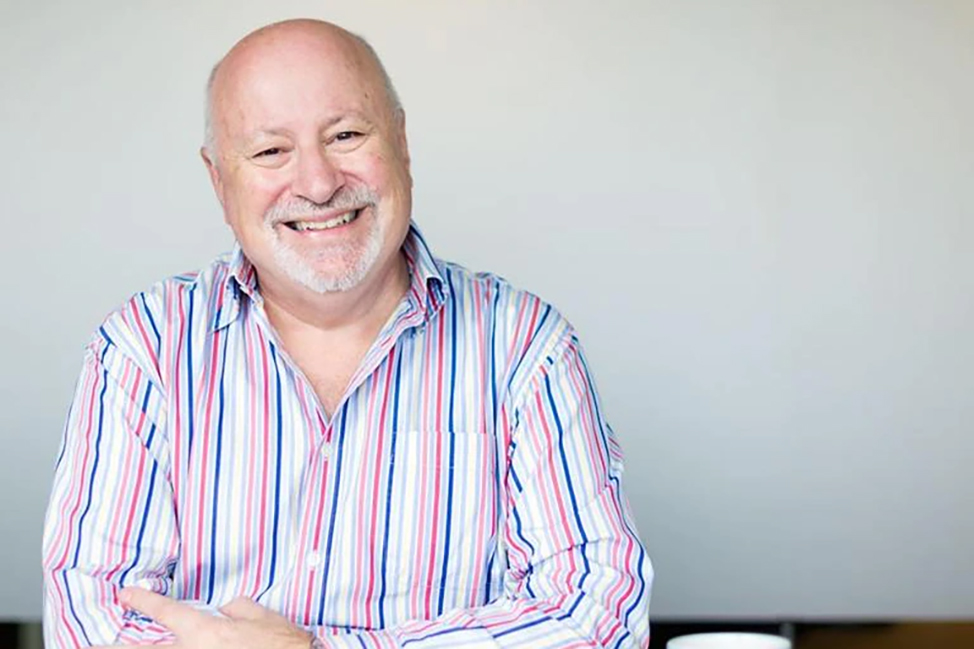- connecting our global business alumni network
20 December 2022
Dreaming of a COVID-free Christmas

Leading Australian epidemiologist, University of South Australia’s Professor Adrian Esterman is, in fact, a NOVID. Read on to find out what that means and what we can all do to protect ourselves and our families over the holiday period.
As the world moves on from lockdowns and isolation, it’s easy to become complacent about the presence of COVID in the community. “Unfortunately, the pandemic is not over, and COVID-19 is not just another respiratory infection,” says Prof Adrian Esterman. “In fact, it is not even a respiratory disease (such as influenza), as it can infect every part of our body.”
According to Prof Esterman, the peaks of the COVID waves are getting lower, presumably because so many people have been infected and now have at least partial immunity. “If this pattern continues, then over the next couple of years, we are likely to get into an endemic situation, a bit like influenza. However, there is also the chance that a totally new strain develops, more transmissible and pathogenic than omicron.”
Surprisingly, we all know a few people who seem to have avoided infection so far – hence the recently coined term “NOVID”.
“I am a NOVID and intend to stay that way for as long as possible. I am 74, with an impaired immune system. So, these days, I work mainly from home – I’m lucky I can do that. I am also careful when I go out – no office Christmas party for me! I wear a P2 mask whenever out and about, especially on public transport and shopping. However, I don’t live like a hermit. I still go to outdoor functions or even indoor ones if I wear a face mask.”
Prof Esterman recommends that those who have been infected try to avoid getting reinfected as each infection increases your chance of experiencing long-COVID. As well as the anti-viral medication currently in use, there are many new treatments under development for those unfortunate enough to get infected.
“There are currently hundreds of clinical trials of new vaccines and treatments going on, and the longer you stay COVID-free, the more likely that you will have a better outcome. Vaccines currently being developed include pancoronavirus vaccines that work with any new variant and are probably two to three years away. Nasal spray and inhaled vaccines with the potential to stop transmission will likely be available next year.”
Understandably, for the past couple of years Prof Esterman’s expertise has been in high demand.
“One of the biggest changes to my life has happened because I am an epidemiologist in the middle of the biggest pandemic since Spanish flu. Three years ago, I had zero Twitter followers, and I now have 39,000. I am also in constant demand from the media, professional and community groups to give presentations and interviews. I love writing, and I have now written 29 articles for The Conversation with more than 2.5 million readers. So, for me, COVID has opened a new and enjoyable chapter in my life.”
So, the million dollar question is, “when is this all going to end?”
“Unfortunately, I am an epidemiologist, not a seer. Currently, our modellers are finding it very difficult because of the big ‘soup’ of subvariants circulating, and the big range of natural, vaccine-induced and hybrid immunity in the population. With further restrictions on PCR testing, we soon won’t even have a good handle on how much COVID is circulating in the community.”
Fortunately, important lessons have been learned on this journey. Australia will soon join the rest of the OECD nations in having its own Centre for Disease Control and, with greater capability to manufacture vaccines, the world will be much better prepared when another pandemic occurs.
Prof Esterman’s tips on protecting yourself and your family over the holiday season
- The most important thing you can do is to make sure that you and your family are up to date with your COVID vaccinations. Despite the conspiracy theories and misinformation out there, the vaccines are safe and do work to protect you from serious illness and death.
- Whenever possible, hold gatherings outdoors – sunlight degrades the virus, and wind disperses it.
- If you are going to a situation where there is a high risk of transmission (eg shops, public transport, healthcare settings), then wear a high-quality face mask, either a surgical mask, or better still, a KN95/P2 mask.
- If you have vulnerable people (think elderly) at family gatherings, consider asking everyone to take a Rapid Antigen Test (RAT) before they arrive.
- An air purifier would make a great Christmas present. You can get one with a HEPA filter for less than $400.


